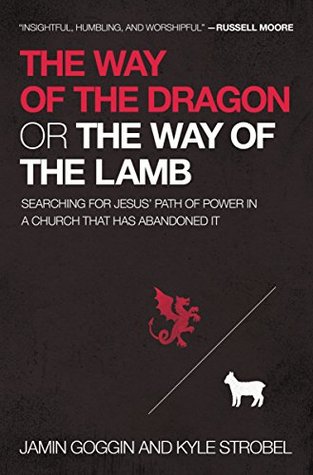More on this book
Community
Kindle Notes & Highlights
by
Jamin Goggin
Read between
March 27 - March 31, 2020
Confronted with the aspects of our hearts that the wilderness raises within us, we may fight against the Spirit, grit our teeth, dig in our heels, and just do it our own way. Or we can try to hide, hoping that if we don’t think about how much our flesh still governs us, God won’t notice.
As Christians, we are not simply trying to be good, or even trying to achieve holiness; as Christians, we are those who live in Christ, who is holy, and we are those indwelt by the Holy Spirit himself (God’s own Spirit of Holiness).
We become tuned to God’s life as we live in his presence. Even though God’s presence will expose our idolatries, fears, and anxieties, we must come to walk with him.
Family rituals fail when the bodies move but the hearts are left behind; they become hollow acts of tradition without the values, narrative, or purpose that fueled their original creation.
Therefore, we don’t begin with prayer as a device for getting things done, but as a means of communing with God who transforms the heart and leads us in the way.
when we “cease to set the agenda” in prayer and when we “‘make space’ for God to be God.”1
We attach ourselves to work, to people, and to accomplishments. We lose ourselves in the world, and the world is not neutral in the cosmic battle. In prayer we recollect ourselves in the truth that power and value are found in Christ alone and that our life is hidden with Christ in God (Col. 3:3).
Hearts tuned to the grace of God in prayerful abiding and love will instinctively harmonize with three broad expressions of the way: generosity, reconciliation, and nondivisive resistance.
The problem with our conception of generosity is that we tend to think only in terms of money. But a generous person is more than someone who gives money. A generous person gives himself or herself to another.
But generosity isn’t simply a better way to live (in contrast to, say, stinginess). Generosity is a form of resistance. A heart that is formed by greed, pride, self-centeredness, and anger will very quickly adopt forms of living that affirm the power structures of the world, the flesh, and the devil (even within the church). But people formed for the kingdom, formed by generosity of spirit, are those who unmask demonic initiatives and bear witness to a different way.
Here is the heart of God’s generosity toward us. He loved so he gave. He gave himself.
Generosity is having a heart that can open wide to receive others in love, taking them within your heart and giving yourself to them in return. Generosity of heart is having the same kind of heart as God, lavishing grace and mercy upon others in the same way God has done for us in Christ.
The gospel presses us to accept the difficult reality that we do not become reconciled to God in isolation, but as members of a covenant community in Christ. This community is not a homogeneous group of look-alikes, but it exists in palpable and beautiful diversity.
Reconciliation and control are rivals, so reconciliation resists, and will stand against, forms of communal control and homogeneity. Whereas control leads to unity by demolishing diversity, reconciliation leads to unity within diversity—which requires us to lay down our own control.
Acts of reconciliation require repentance, forgiveness, peace, justice, and sacrifice. Because we follow a God who has reconciled us to himself and who offers forgiveness freely, God’s
people are those who give themselves in love to one another and to the world in the freedom we have found in him.
Rarest, perhaps, are those who understand when to be silent and when to speak.
just as Jesus stood silent before Pilate’s inquiry (Mark 15:5). Such silence is not passive acceptance, but a trusting in God’s power and a subversive exposure of evil. At times we are called to speak hard truth, just as Jesus rebuked those who questioned him by saying, “You are of your father the devil, and your will is to do your father’s desires” (John 8:44). In the face of evil, discernment is required. Whether in silence or in speech, we are called to stand with and for the truth against Satan, the father of lies.
What we need to see is an embrace of truth that is truly done in love—with compassion, grace, and generosity, seeking reconciliation and refusing to be divisive. This will look different in almost every situation because these kinds of actions are relationship- and context-specific.
As we journey through this present evil age, faithful living will entail suffering. Suffering is assumed on every page of Scripture.
When we focus on what God can offer us, what the church can do for us, and how meaningful the Christian life can feel to us, suffering does not seem to have a place in our story.


